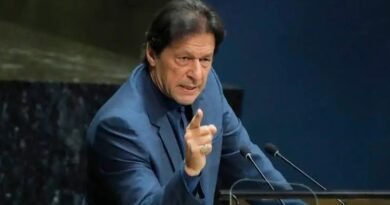India home to second largest Muslim population in world: NSA Ajit Doval
He said that they are proud of the excellent relations that exist between India and Saudi Arabia, that are rooted in the shared cultural heritage, common values, and economic ties.
“Our leaders share a common vision of the future. The enduring profoundness of our historic relationship can be understood from the fact that Prophet Mohammad’s, PBUH (Peace Be Upon Him), noble wife Hazrat Khadija had a liking for silk and Kashmiri shawls from India.”
He said that India, the world’s largest democracy and the mother of democracies, is a land of incredible diversity. “It is a melting pot of cultures, religions, and languages that coexist in harmony. As an inclusive democracy, India has successfully managed to provide space for all its citizens, regardless of their religious, ethnic or cultural backgrounds.”
Doval said that among its numerous religious groups, Islam occupies a unique and significant position, with India being home to the second-largest Muslim population in the world. “In fact, to give an idea of the scale we are talking about, Indian Muslim population is almost equal to the combined population of around 33-member states of the Organization of Islamic Cooperation.”
He added that Islam arrived in India in the 7th century CE during the life of Prophet Mohammad (Peace Be Upon Him) and gradually found a new home in the subcontinent. “Over the centuries, it developed a unique syncretic tradition that is deeply rooted in the ethos of Indian cultural life. The deep spiritual contents of Hinduism and Islam brought the people together and helped in bringing about a social and intellectual understanding of each other. It gave rise to a distinct and vibrant expression of peace and harmony, notwithstanding the vagaries of political ups and downs. While the historians have focused more on the political events, they have failed to capture the societal undercurrents that brought the people together.”
He also said that India welcomed Arab exiles (in the court of Raja Dahir of Sindh), Jews, Tibetans, Parsis, Shias, Bangladeshis, Afghans and many others with open arms.
“This enduring tradition of accommodation is a testament to India being a deeply rooted multiethnic, multi-religious, and multilingual society. Swami Vivekananda in the famous Parliament of the World’s Religions in Chicago in 1893, had rightly declared, that “I am proud to belong to a nation which has sheltered the persecuted and the refugees of all religions and all nations of the earth.”
Doval said that this ethos of acceptance becomes all the more significant vis-à-vis Islam given that at a time when Islamic Golden Age was coming to an end with the Mongol capture of Baghdad in 1258, Indian heartland was quietly nurturing a Sufi renaissance with many sages and mystics spreading the message of peace and brotherhood.
“It was otherwise a time of great tumult in which striking changes in the realm of ideas and beliefs were taking place across the world. The Islamic world had suddenly lost its political heft. A new orthodoxy was challenging the Islamic universe of thought. And in midst of all this India offered an oasis of stability and peace where Yogis and Qalandars, mystical masters, pilgrims, exiles, dissidents from different schools of thought found a common home. The close interactions among the people led to cultural fusion. It not only enriched art, literature, architecture, cuisine, technology, etc. but more importantly created a syncritic consciousness that permeated through common people.”
He said that the edifice of modern India is built on the principles of equal rights, equal opportunities and equal responsibilities. “This equality is guaranteed by our Constitution and Law. India continues to play its role as a refuge for heterodox ideas with infinite capacity to absorb dissent. No religion is under any threat. As a proud civilizational state, India believes in promoting tolerance, dialogue and cooperation to deal with the challenges of our time. It was no coincidence that despite having around 200 million Muslims, the involvement of Indian citizens in the global terrorism has been incredibly low.”
He added that yet the challenge of extremism and global terrorism compels us not to lower our guard. “To preserve the security and stability within our borders and also rise to the security challenges beyond, India has been leading the fight – the fight against individuals and organizations – who are promoting extremism, narcotics and terrorism.”
He also said that as G-20 President, they ideated the slogan for the Summit as “One Earth, One Family, One Future.” “It is only with mutual trust and cooperation among nations, civil societies, religions and people of the world that security, stability, sustainable development and a dignified life for all citizens can be ensured.”
He said that in the past, nations might have fought with each other to resolve their differences. “But, as our Prime Minister says, this is no more the age of war. Future battles for the good of humanity will have to be fought against hunger, poverty, ignorance and want. In today’s world, with complex geopolitical challenges confronting us, religion has to become a beckoning light for the humanity to usher into an era of peace and harmony. Our differences will have to take a backseat if we wish to realize the true human potential and make this world a better place to live for our coming generations.”
Doval said that Issa’s visit today is an opportunity to deepen the cooperation between two countries and explore new avenues for partnership. “I am sure that you will enjoy your stay in India and carry fond memories of the place back with you. We hope that your visit will pave the way for greater cooperation between India and Saudi Arabia and further strengthen the ties between our two nations.” (KNS)



